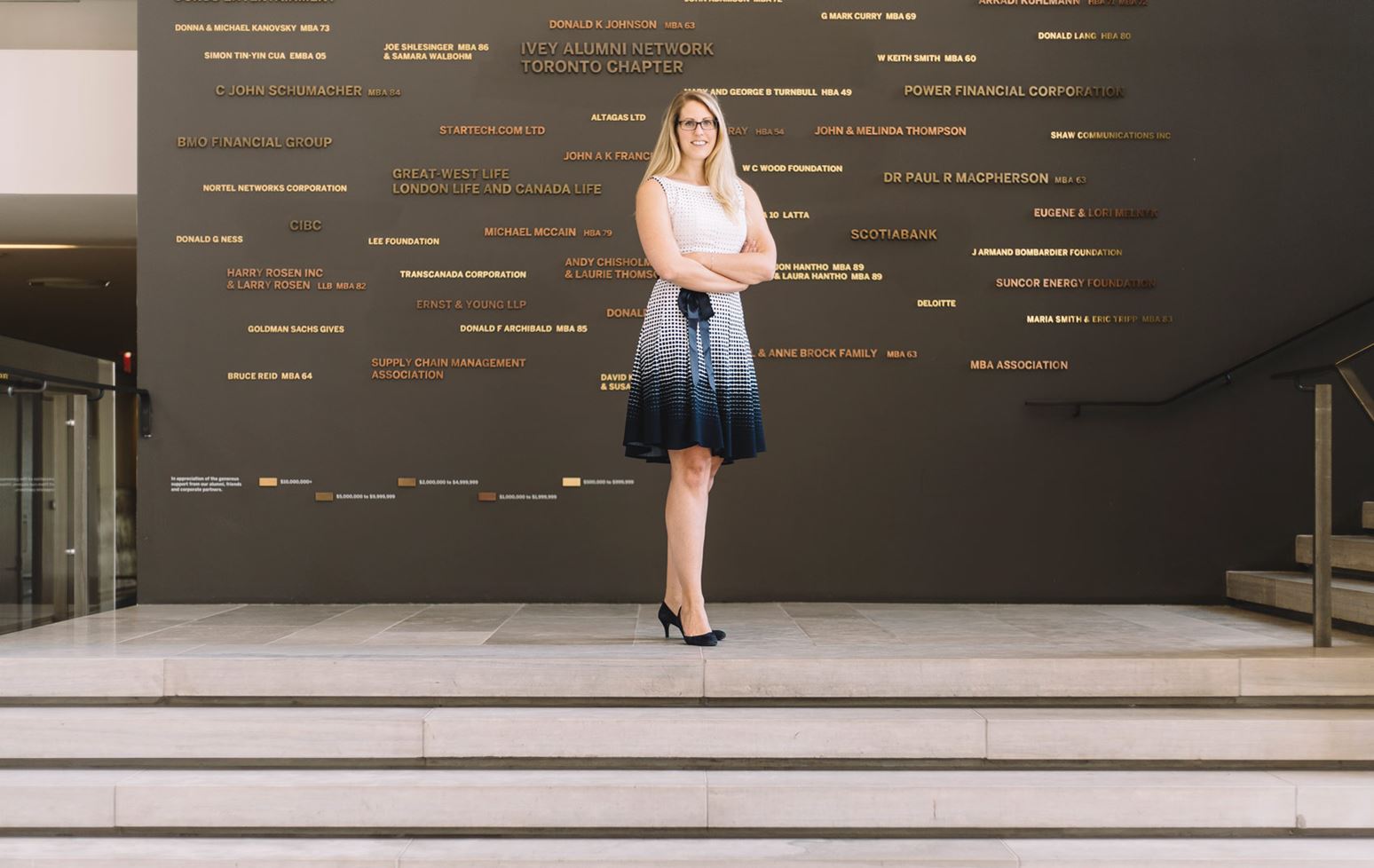DeGroote Introduces New Faculty, and More – Toronto News

This week, Toronto business schools have welcomed new faculty, promoted existing faculty, and been cited in popular publications. We’ve given a brief overview below.
The Innovators: DeGroote Welcomes Teresa Cascioli, Alfredo Tan as Industry Professors – McMaster News
McMaster University’s DeGroote School of Business has added two new professors to strengthen the school’s commitment to nurturing innovation and entrepreneurship. Professors Teresa Cascioli and Alfredo Tan have committed to a three-year term at the school.
Both Cascioli and Tan have joined the Strategic Management faculty. Cascioli will specialize in entrepreneurship, whereas Tan, a former Facebook executive, will specialize in digital transformation.
Cascioli, who graduated from McMaster in 1983, has long been involved with its growth. In 2008, she won the Wayne C. Fox Distinguished Alumni Award. She has donated upwards of $6 million to the school since graduating. Len Waverman, the Dean of the DeGroote School of Business, says:
“Teresa is someone who’s had great success in business, and she’s still succeeding. She’s a noted entrepreneur, and as we’re pushing more into the innovation and entrepreneurship space, it will be great to have her expertise on hand.”
Though Tan’s path to the field of digital innovation was far from straightforward, he has established himself as a valuable force. According to Len Waverman, Tan, “… is on the frontier of digital innovation, and that helps us be on the frontier as well.”
You can find out more about the new professors here.
How Leaders Can Get Better At Using Data to Make Decisions – Forbes
Forbes recently highlighted an article from the fall issues of Rotman Management—the University of Toronto’s Rotman School of Management‘s official magazine—discussing the misconception that increased reliance on data analytics to justify business actions has lead to less biased decision-making.
In the case study, Data Analytics: From Bias to Better Decision—which first appeared in the HBR Guide to Data Analytics Basics for Managers—Megan MacGarvie and Kristina McElheran argue that bias is still a major concern, even when data is informing the decision.
The co-authors laid out a few common cognitive traps that decision-makers often fall into. For example, “The Confirmation Trap” occurs when a decision-maker pays more attention to data that aligns with their expectations or existing beliefs. Understanding these cognitive traps may help organizations execute decisions that are truly informed by data analytics, rather than bias.
You can read more about the research here.
Schulich Professor Peter Macdonald Appointed Co-Director of Hennick Centre – yFile
York University has named Schulich School of Business Professor Peter Macdonald as the Co-Director of the Hennick Centre for Business and Law. After graduating from York’s Osgoode Hall Law School in 1985, York practiced law at multinational corporations, acted as a mediator, and eventually returned to York in 2001 to teach business law at Schulich.
On the announcement, Ed Waitzer, Director of the Hennick Centre for Business and Law, says:
“We’re very fortunate to have Peter join us as a co-director of the Centre. As co-director of the JD/MBA program, Peter already plays a key role in, and has made a huge contribution to, many of our programs and priorities. He’s a terrific resource.”
You can learn more about Professor Macdonald here.
Schulich Professor Honored, and More – Toronto News

This week has seen strides for Toronto’s business schools, so lets take a look at some of the highlights.
Serving the Public Good – Corporate Knights
Ed Waitzer, professor at the Osgoode Hall Law School and York University’s Schulich School of Business in Toronto, is the newest recipient if the Corporate Knights Award of Distinction.
In addition to teaching corporate law at York University’s Schulich School of Business, Waitzer is on the advisory board of the Pontificia Universidad Católica de Chile’s corporate governance centre, and frequent lecturer at various universities. At 64, Waitzer remains active and continues to challenge his students and peers to question “compliance mentality,” and decipher what it means to do the right thing in any given situation.
“Ed has spent much of his life advancing the legal foundations for corporations and pension funds to better serve the public good. He’s brought a high level of credibility to interpreting a complex body of law in ways that expand the concept of fiduciary responsibility and allow business leaders to use their power to better serve the interests of a wide range of stakeholders. He makes it less possible for a corporate or pension board to shut down, say, discussions about blackballing child labour or coal because, ‘We have a fiduciary duty to our shareholders.’” -Toby Heaps, Corporate Knights CEO and Publisher.
Learn more about Waitzer’s life and career here.
Ivey MBA Association Welcomes New President – News@Ivey
Western University Canada’s Ivey Business School’s MBA association has elected Marika Marty as its president. Marty was elected by the MBA class of 2019 and will be the first president the association has seen in over 15 years. As president, Marty will represent the student body and facility unity in her class.

Marika Marty, ’19 MBA / Photo via ivey.uwo.ca
The new MBAA said that initially she put off even applying for her MBA for years, thinking that she would have to choose between a career and a family. However, she soon realized this thinking was flawed and chose to challenge herself. “As women, sometimes we sell ourselves short. Being able to embrace opportunity is the real challenge,” Marty said.
Read more about Ivey MBAA’s new president here.
The Debate In Canada Over Paying Plasma Donors – Policy Options Politics
In a recent article in Policy Options Politics, the need for plasma and the choices facing policy-makers has come to a face.
The paper—co-written by Nicola Lacetera, associate professor at the University of Toronto’s Rotman School of Management, and Mario Macis, associate professor at Johns Hopkins University’s Carey Business School—notes that over 80 percent of plasma used to treat patients in Canada is brought in from the U.S. Both the US and Germany can provide a significant amount of plasma, as their laws allow for the creation of private collection establishments as well as compensating donors for the time commitment and discomfort that accompanies donation, but the majority of Canadian provinces prohibit the payment of donors and establishing for-profit collection centers.
In the exploration of the issue, Lacetera and Macis cite the problems with paying plasma donors as well as the benefits (greater incentive to donate, thus less reliance on foreign imports). For example, paying donors could lead to an increase in tainted donations from people who are not healthy, and are just trying to earn money quickly.
Read more about options for increasing domestic plasma donation in Canada here.
